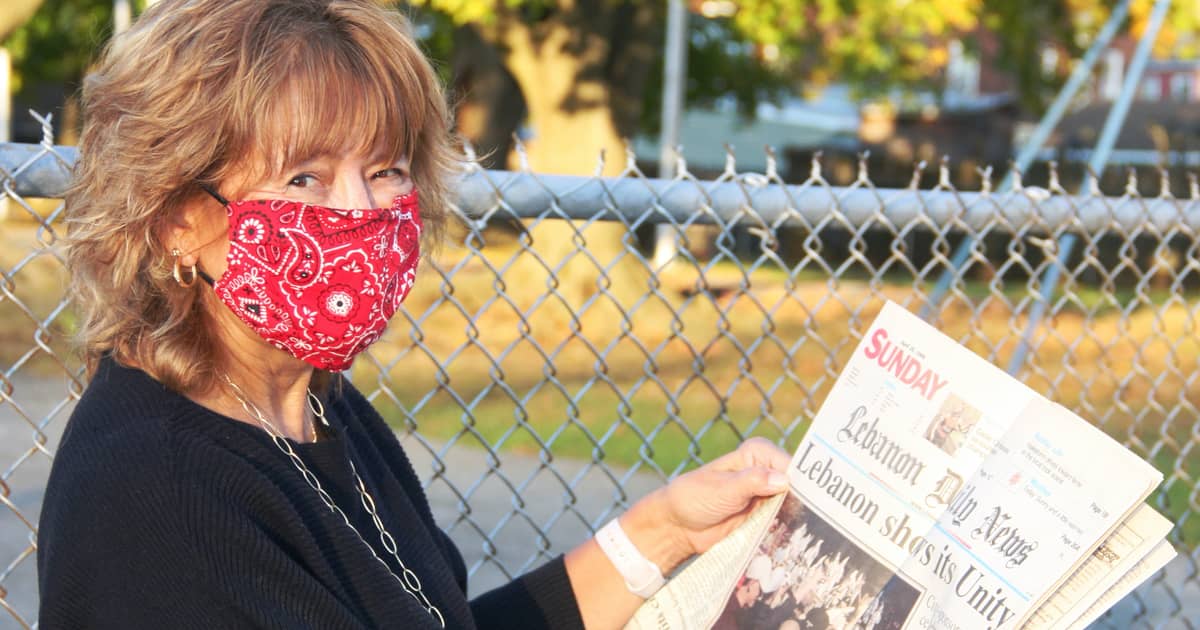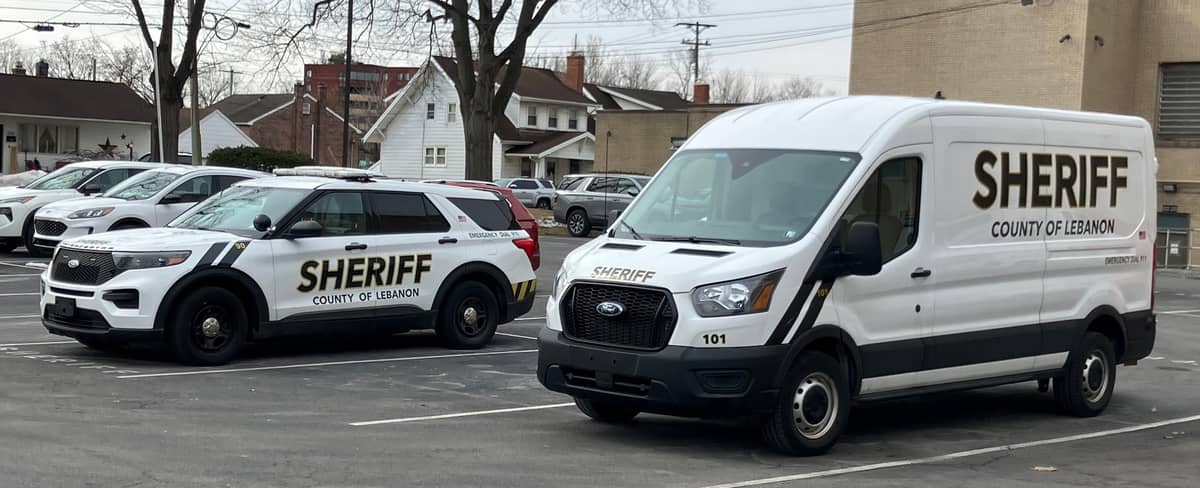Being mayor of Lebanon doesn’t define Jackie Parker, it doesn’t make her who she is. But it was a special time in her life, one that profoundly affected her big picture.
Perhaps one of the most important things it did for Parker was help make Lebanon her hometown.
It’s been 20 years since Parker was the mayor of Lebanon. Since then, times have changed, the city has changed and Parker has changed.
“My hometown is Lebanon,” said Parker, a native of Flint, Michigan. “I’ve been here 40-some years. My home is in Lebanon. I raised three boys here, got involved with church, we’re Lebanon people. But I have very fond memories of Flint, Michigan. My parents were very encouraging of whatever we wanted to do.
“It’s been 20 years since I was mayor,” continued Parker. “I was mayor and the younger generation probably has no idea of who I am. But there are a certain amount of people who do know who I am. I was absolutely proud and honored to be mayor of Lebanon. I absolutely did the best I could to make Lebanon a better place to live. What I did was involve as many people as I could in the decision-making process, because it’s about people. People should be involved in the direction of their city and their own future.”
If nothing else, Parker’s four years as mayor, from 1998-2002, should be characterized by her hands-on, people-first, ‘grass-roots’, we-over-me approach.

After winning the 1998 election, Parker took over for former mayor Betty Eiceman. She was voted out of office in favor of Bob Anspach, by 120 votes in 2002.
“I think we’re a close-knit community,” said Parker. “We’re smaller, but we have the same issues as other third-class cities. It’s probably easier to address some of the problems because we are smaller. But I love the walkability of Lebanon. It’s comfortable. There are green spaces in every quadrant of the city. I like the people here. I think we’re friendly.
“I was only there four years,” Parker continued. “You probably need eight years to get your vision together and implement it. We implemented our vision in four years. I’m very happy with what I did. It may have been incomplete, but we accomplished a lot. I don’t think there was anything left that wasn’t addressed in my vision.”
These days, Parker remains involved with the continued development of the city, especially the movement to incorporate the Latino community into the Lebanon landscape, as a volunteer consultant. She’s also active in the City of Lebanon’s planning commission and sits on the board of the First Aid and Safety Patrol.
“I’m semi-retired now,” said Parker. “I want to help the community if it needs help. Some of it is volunteer and some of it is paid, but I want to stay involved. I want to help the Latino community understand how city government works. I want to help the Latino business economy grow, and help it become part of the Lebanon economy. I feel very strongly about Lebanon and I can see that the Latino population is growing.
“Back in the day, it (the Latino population) was 30 percent of the city population,” added Parker. “I’m guessing that now it’s like 40 percent. The question is, ‘How do we integrate them into our economy and into our lives?’ I’m sure there are some people who work with their neighbors, no matter what. But I don’t know if they’re (Latinos) integrated into the whole Lebanon economy. It’s a process. But there are so many things the Latino community can do.”
After leaving the officer of mayor, Parker went on to work for the state of Pennsylvania’s Department of Community and Economic Development, first as the director of its community action team and then as its deputy secretary. From 2014 to 2018, she served as the executive director of the City of Harrisburg’s community and economic development department.
Parker’s subsequent roles were certainly different, but she was able to draw from the experiences she had gathered as Lebanon’s mayor.
“It certainly opened my eyes to a lot of things,” said Parker, of her time as mayor. “I was new to how municipal government works – the funding process, understanding the different departments. I really valued those four years. I learned a lot about crime and public safety, but I was surrounded by experts. I was a user of funds and I became a provider of funds. Being mayor gave me specific components for my next roles.
“I just believe strongly in public service,” Parker added. “I believe people should be involved in the community around them. What is your cause? Everything is local and involves you. Public service is really what I’m all about. How can we make it better?”
After graduating from St. Mary’s College of Notre Dame, Indiana, it was employment and marriage which first brought Parker to Lebanon in 1977. Parker served on the Lebanon School Board for five years, before throwing her hat into the mayoral ring in the late 1990s.
“The city had shifted over to a strong-mayor type of government, and I was thinking about how things were going in the City of Lebanon,” said the 68-year-old Parker, who resides in a southeast portion of the city. “It wasn’t going the way I thought it might go. Harrisburg, Lancaster, and Reading had strong forms of mayor governments, so I thought we should step up. So I thought I’d run for mayor. I believe, for what I was looking for, we did accomplish a good path for the city.
“We established neighborhood watch groups, and I took the city staff heads and had meetings in the different quadrants of the city,” added Parker. “To me, that’s how government should work. We should be out there meeting people. I felt we were just more in touch with our neighborhoods. It was neighbor-friendly and people looking out for each other.”
While her government-of-the-people mentality served her well during her term as mayor, it also presented Parker with her greatest challenge.
In late April of 1999, an area chapter of the Ku Klux Klan’s request to conduct a rally on the steps of the Lebanon courthouse was granted. Parker and the city’s response was to hold a subsequent ‘Unity Day.’

“There were many hate groups operating around the state at that time, and they came to mid-sized towns,” said Parker. “They were there and people were nervous. It was a sad day to see the Ku Klux Klan on our courthouse steps saying some very ugly things. But everyone pulled together. It (Unity Day) was a commitment that our city wasn’t going to put up with hate.
“On that day, I was the mayor,” Parker continued. “We had riot police waiting for any kind of trouble. In the end, it turned out to be OK. But it was very distressing. The synagogue is right across the street from the courthouse. It was really awful. We asked the citizens of Lebanon to not be afraid. It was peaceful, but people were yelling back at the Ku Klux Klan. Gang violence had perpetuated it. Their message was that the minorities who are here, shouldn’t be here.”
While some things have changed in the city of Lebanon, some have remained the same. The future is always difficult to predict, but Parker’s experiences make her more qualified than most to know where it’s headed.
“I don’t have a crystal ball,” said Parker. “I really hope the city stays out of Act 47. You really don’t want to be a distressed city. We’re doing OK. But the question is, ‘What else can we do to encourage other people to come here?
“I think the Mayor’s (Sherry Capello) proposal to move city hall downtown is an important piece,” added Parker. “It’s a very good move. It would add vitality to downtown and I think it will encourage businesses to grow. I hope that Latino businesses will locate downtown. I hope there will be a gradual growth. People are thinking about new ways to do business. People who come here like to stay.”
Take it from someone who knows.
Questions about this story? Suggestions for a future LebTown article? Reach our newsroom using this contact form and we’ll do our best to get back to you.

Become a LebTown member.
Cancel anytime.
Monthly Subscription
🌟 Annual Subscription
- Still no paywall!
- Fewer ads
- Exclusive events and emails
- All monthly benefits
- Most popular option
- Make a bigger impact
Already a member? Log in here to hide these messages
You know us because we live here too. LebTown’s credibility comes from showing up, listening, and reporting on Lebanon County with care and accuracy. Support your neighbors in the newsroom with a monthly or annual membership, or make a one-time contribution. Cancel anytime.

























